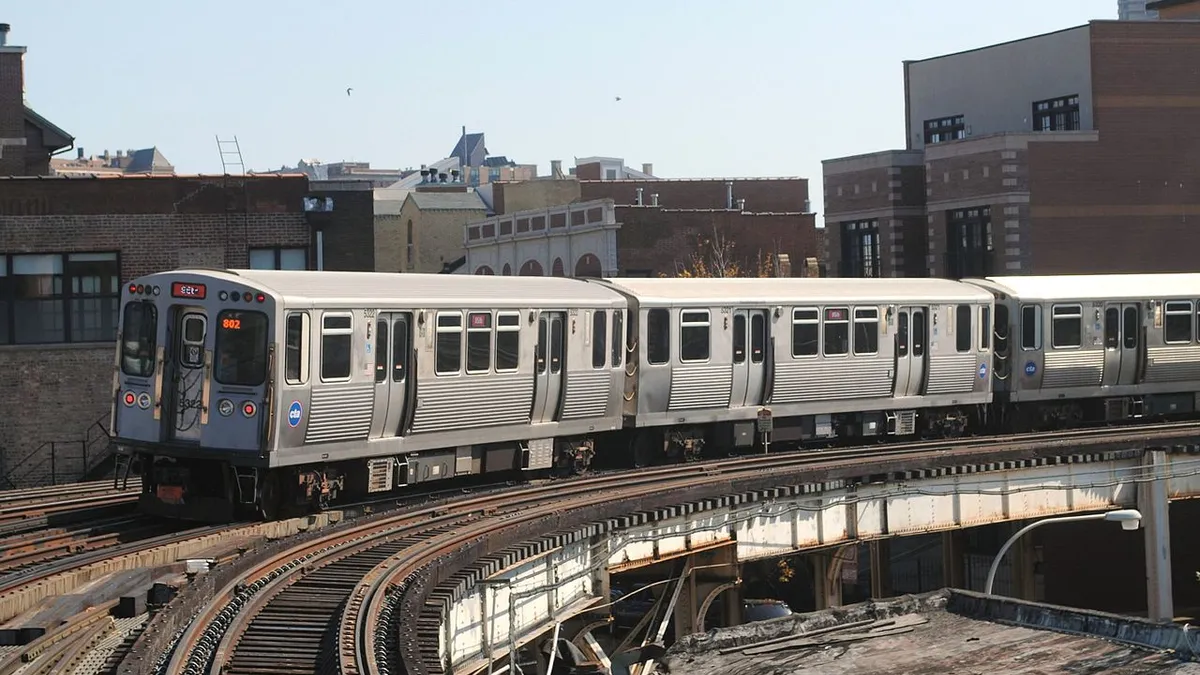Dive Brief:
- Chicago Transit Authority (CTA) rail stations will see $33 million in safety improvements as part of the city's new "Safe and Secure" initiative.
- Starting later this year, CTA will begin adding 1,000 new security cameras and upgrading 3,800 others to high-definition throughout its rail and bus transit system. It will also add new lighting, make repairs and add employee-controlled video monitors at all 146 CTA rail stations. More than 100 bus turnaround points will get cameras.
- The upgrades will be paid for through an extra 15-cent per ride fee for ride-share users, which Chicago Mayor Rahm Emanuel proposed in his budget last year and the city council approved. The new surcharge began in January and is on top of an existing 52-cent per ride city fee.
Dive Insight:
"Chicago is the first city in the nation to create a ride-hailing fee dedicated to transit, making it possible to continue to invest in the latest technology and improvements that enhance commuting and improve the quality of life in our city," said Mayor Rahm Emanuel in a statement.
Although Emanuel boasts of being the first to dedicate a ride-sharing fee to transit, the same has been proposed in New York as part of the negotiations on the city's congestion pricing plan. That fee would be $2-$5 and would also cover taxi rides. Still, New York hasn't yet put the plan or any new fees into action. An advocacy group in Cleveland has also proposed a 27-cent per ride fee to fund that city's public transit.
Even if Chicago is the first to use such fees to finance transit projects, the concept of ride-share surcharges funding city and state projects isn't brand new. In Philadelphia, instead of paying a flat surcharge, riders have been subjected to a 1.4% tax on every ride that is split between the school system and the Philadelphia Parking Authority. A proposal would change that to a 50-cent per ride surcharge. In 2016, Massachusetts passed legislation to collect 20 cents per ride, with 5 cents of that actually going to the taxi industry, while 10 cents goes to cities and towns and 5 cents to the state transportation fund. Portland, OR also imposes a 50-cent per ride fee.
Emanuel specifically targeted ride-sharing with the tax because he claims the industry has stripped Chicago and surrounding municipalities of $40 million, in part by luring riders away from CTA services.
Chicago has one of the oldest subway systems in the United States, preceded only by Boston, New York and Philadelphia. As such, some of the infrastructure is very much in need of some attention. The $33 million project will take on some of those repairs, but the focus mostly is on improving passenger safety. Safety concerns sometimes prompt riders to limit their time on public transit, so this initiative has the potential to boost passenger confidence, and perhaps even ridership as a whole.












